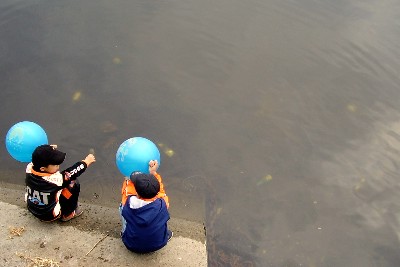Russian Cases: «с чем?» [with what?], or «творительный падеж» [the instrumental case] Posted by josefina on Jan 24, 2010 in language
«Что это?» [what is this?] This is «книжный шкаф С ПОЛНЫМ СОБРАНИЕМ сочинений Владимира Ильича Ленина» [a bookshelf WITH (THE) COMPLETE COLLECTION of works by Vladimir Il’ich Lenin]. But in order to answer the question «сколько в нём томов?» [how many volumes are there in it (lit. ‘in him’ since the noun ‘collection’ in Russian is neuter)?] I’d recommend you to count them yourself…
A fairly large amount of time here has been devoted to discuss «падежи русского языка» [the cases of Russian language]. And this is a fact that should not be shocking to anyone, considering that Russian language has no less than «шесть падежей» [six cases] (now THIS kind of information might shock some!). Previously on the blog there have been posts on «винительный падеж» [accusative] and «дательный падеж» [dative]. And so it has finally come to this: «творительный падеж» [instrumental case]. This particular case is also known as Russian language’s ‘wildest case’. To whom is it known as this, you might wonder; who considers it to be «дикий» [wild, savage; barbarous, tameless]? Well, I think it this is such a common thought that it must have crossed anyone’s mind the first time they came face to face with it (implicitly ‘anyone’ in this context means ‘anyone who’s ever tried to learn Russian’, but I think you got that, right?). «Творительный падеж» [instrumental case] is ‘wild’ first and foremost to people with native languages lacking anything like it. It changes the words in ways unheard of to us. Let me give you an easy example of this: take the tiny, nice, masculine noun «путь» [way, path; track, lane; road, avenue] and put it in the instrumental case and you’ll receive something that’s almost completely transformed: «путём»! Did you see that? Did you see how the instrumental case just changed HALF of the whole word? Now if that’s not «дико» [wild] – I don’t know what is!
The instrumental case affects (or – even better in my opinion – ‘inflicts’) Russian masculine and neuter nouns in one and the same way: adding to their ending «-ом» (if the noun has a hard ending) and «-ем» or «-ём» (when the ending is soft). I’ll give you a couple of examples to illustrate this:
Neuter with a hard ending: «повидло» [jam, marmalade]:
«Я люблю пироги с повидЛОМ» – [I love pirogues with jam].
Masculine noun with a hard ending: «привет» [greeting; regard; remembrance; compliment]:
«Я пришёл к тебе с приветОМ…» – [I’ve come to you with a greeting… (the first famous lines from the poem with the same name by «Афанасий Афанасьевич Фет» [Afanasy Afanas’evich Fet])].
Masculine noun with a soft ending: «товарищ» [comrade]:
«Мы с товарищЕМ встречаемся часто» – [I and (my) comrade meet often].
«Что это?» [what is this?] This is «девушка с ружьём» [a girl with a gun]. «Ружьё» [gun, rifle] is a neuter noun with a soft ending.
Feminine nouns are also inflicted with just as much of a ‘heavy’ change in their endings because of the instrumental case. Female nouns with a hard ending receive «-ой» whereas those with soft get either «-ей» or «-ёй» or simply «ю» (the last goes for ALL abstract feminine nouns that end with «ость» and should be considered as kindness on behalf of this otherwise rather cruel case):
Feminine noun with a hard ending: «вода» [water]:
«У тебя есть бутылка с водОЙ?» – [Do you have a bottle of (lit. with) water?]
Feminine noun with a soft ending: «учительница» [teacher]:
«Я поговорил с твоей учительницЕЙ» – [I have spoken with your teacher].
Feminine noun with a soft ending: «земля» [earth; land; ground, dirt, soil; territory]:
«Что под землЁЙ?» – [What is under the (here) ground?]
Abstract feminine noun with a soft ending: «ответственность» [responsibility, accountability, liability; amenability; trust]:
«Необходимо относиться к этому с ответственностьЮ» – [It is necessary to refer to this with responsibility].

«Что это?» [what is this?] This is «дети с воздушными шариками» [children with balloons].
Now so far we’ve only discussed what happens to the three different kinds of Russian nouns in SINGULAR – «в единственном числе» – when they’re forced into the instrumental case. (Some of you diligent learners of Russian language might not think this case at all ‘wild’ or ‘cruel’ like I do, but you actually LIKE it – hey, whatever floats you boat!) The most interesting thing with the instrumental case is, however, what happens to the same nouns «во множественном числе» [in plural]. When we’re talking plural in Russian you don’t have to worry any longer about whether a noun is feminine or masculine or neuter. All plural nouns in Russian are affected (or – once again – inflicted) in the same way by the instrumental case. All you need to remember is whether the ending is hard or soft. If it is hard you add «-ами» to the ending of the word. If it’s soft, then you’ll add «-ями» instead. It is a little bit difficult for me to give you exact examples of this that have not only grammatically but also semantically correct structures, but I’ll give it a try. And you’ll see clearly that even NUMBERS in Russian are also affected by the cases!
Feminine noun with a soft ending: «спальня» (plural: «спальни») [bedroom]:
«У меня квартира с двумя спальЯМИ» – [I have an apartment with two bedrooms].
Masculine noun with a hard ending in singular: «брат» [brother], but SOFT ending in plural «братья» (are you taking notes? well, you should be!):
«Я видела его с тремя братьЯМИ» – [I saw him with three brothers].
Neuter noun with a hard ending: «место» (plural: «места») [place, location, position; standing, role, function]:
«В поезде купе с четырями местАМИ» – [In the train there are compartments with four places].
In today’s post I’ve tried to focus solely on sentences in which the instrumental case comes after the preposition «с» [here: with]. Of course that’s not the limit of this case in Russian language – far from it! The instrumental case only goes truly ‘wild’ when it is used completely without any preposition whatsoever. But let’s save that grammatical moment for another day, shall we?

Build vocabulary, practice pronunciation, and more with Transparent Language Online. Available anytime, anywhere, on any device.






Comments:
Alan Kirkby:
When you say “inflicts” I think you really mean “afflicts” , since in English something has to be inflicted by someone or something upon someone or something else. Afflicted is when you’re on the receiving end. Normally it’s (subject) “afflicted by” or “afflicted with”, “inflicted on” (object).
Or do you mean the instrumental case inflicts a different ending on the noun?
It’s not just Russian that can tie you in knots!
Josefina:
Alan, I think you are right in both a) that what I meant was that the nouns on Russian language are indeed at the “recieving end” of the instrumental case’s “cruelties”, thus implying “affliction”; and b) that the instrumental case inflicts endings upon nouns in Russian language. I could’ve used “afflict” but I like “inflict” more – even though both of them reminds of “conflict” (another favorite).
Stepan:
Опечатка:
«У меня квартира с двумя спаль(н)ЯМИ»
john jaklich:
So, what caliber gun is that? What brand scope and what model is it?
Josefina:
John, I’m sorry but я не знаю! Not only was the photograph taken almost five years ago now, but I would probably not have known what kind of gun that was had I seen just the other day… Прости!
Scott:
Recently found your site. Looks like it’ll be quite helpful. Thanks! I’m studying Russian in Kazakhstan, and when I saw the picture of the girl with the gun, I looked over at the wall in my dormitory and confirmed it: we have the exact same radiator! Haha, small Soviet world, I suppose!